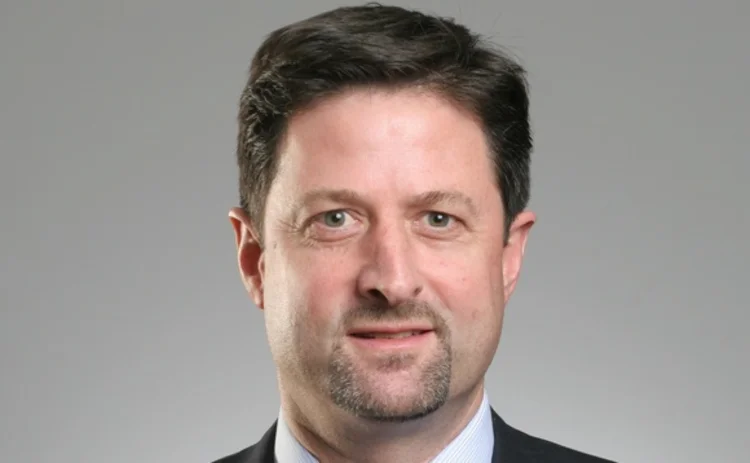SIFMA 2011: The Role of the CRO Needs to Evolve

At the Sifma conference in New York yesterday, I caught up with FinAnalytica CEO David Merrill. I asked him what he thought had gone under-reported, and he told me about the changing role and description of chief risk officers (CROs) on Wall Street. Here's what he had to say:
"We’ll start to see the profile—the persona—of the chief risk officer change. The type of person who was originally sought out for that role needs to change. If you go back five years, the CRO was a person who came from an accounting background or had strong math skills, or experience in operations. But those people might not have been innovators, or may have been less aggressive in meetings with other businesspeople. Back then, and even today, the CRO may not have been part of the executive team."
“The CRO is an important, vital part of the firm and that needs to be reflected in many different ways. People talk about this, but I think it stops too short: If you want to have effective and influential risk management practices in a firm, they must be embraced by the head of trading, the chief investment officer, the CEO, and the head of sales—the key players in the firm. The CRO has to be persuasive enough to get those people all interested in the objective. If they're not interested individually, then their teams won't be either, and it remains a silo. A silo won't have the necessary impact, won’t get the budget and won’t have the synergistic effects that it could have."
"I think this role will change, and an example is what happened with the role of the CTO. A lot of CTOs weren't great businesspeople, weren't great communicators—they were techie and nerdy. But that's changed. A lot of CTOs are very business-oriented, persuasive and articulate, and they have a lot of impact in terms of strategy. Those are the people who can champion projects that can really transform companies. So I think we need to see the CRO role change in the way that the CTO role has changed."
So I want to hear from you: How has the CRO role changed? How should it change in the future? How important it is to have a technological understanding of the risk management systems, and do most firms have a good risk manager already in place?
Shoot me an email at anthony.malakian@incisivemedia.com or find me at Sifma—I always love to hear from readers.
Only users who have a paid subscription or are part of a corporate subscription are able to print or copy content.
To access these options, along with all other subscription benefits, please contact info@waterstechnology.com or view our subscription options here: http://subscriptions.waterstechnology.com/subscribe
You are currently unable to print this content. Please contact info@waterstechnology.com to find out more.
You are currently unable to copy this content. Please contact info@waterstechnology.com to find out more.
Copyright Infopro Digital Limited. All rights reserved.
As outlined in our terms and conditions, https://www.infopro-digital.com/terms-and-conditions/subscriptions/ (point 2.4), printing is limited to a single copy.
If you would like to purchase additional rights please email info@waterstechnology.com
Copyright Infopro Digital Limited. All rights reserved.
You may share this content using our article tools. As outlined in our terms and conditions, https://www.infopro-digital.com/terms-and-conditions/subscriptions/ (clause 2.4), an Authorised User may only make one copy of the materials for their own personal use. You must also comply with the restrictions in clause 2.5.
If you would like to purchase additional rights please email info@waterstechnology.com
More on Emerging Technologies
Standard Chartered goes from spectator to player in digital asset game
The bank’s digital assets custody offering is underpinned by an open API and modular infrastructure, allowing it to potentially add a secondary back-end system provider.
Saugata Saha pilots S&P’s way through data interoperability, AI
Saha, who was named president of S&P Global Market Intelligence last year, details how the company is looking at enterprise data and the success of its early investments in AI.
Data partnerships, outsourced trading, developer wins, Studio Ghibli, and more
The Waters Cooler: CME and Google Cloud reach second base, Visible Alpha settles in at S&P, and another overnight trading venue is approved in this week’s news round-up.
Are we really moving on from GenAI already?
Waters Wrap: Agentic AI is becoming an increasingly hot topic, but Anthony says that shouldn’t come at the expense of generative AI.
Cloud infrastructure’s role in agentic AI
The financial services industry’s AI-driven future will require even greater reliance on cloud. A well-architected framework is key, write IBM’s Gautam Kumar and Raja Basu.
Waters Wavelength Ep. 310: SigTech’s Bin Ren
This week, SigTech’s CEO Bin Ren joins Eliot to discuss GenAI’s progress since ChatGPT’s emergence in 2022, agentic AI, and challenges with regulating AI.
Microsoft exec: ‘Generative AI is completely passé. This is the year of agentic AI’
Microsoft’s Symon Garfield said that AI advancements are prompting financial services firms to change their approach to integrating AI-powered solutions.
Inside the company that helped build China’s equity options market
Fintech firm Bachelier Technology on the challenges of creating a trading platform for China’s unique OTC derivatives market.








